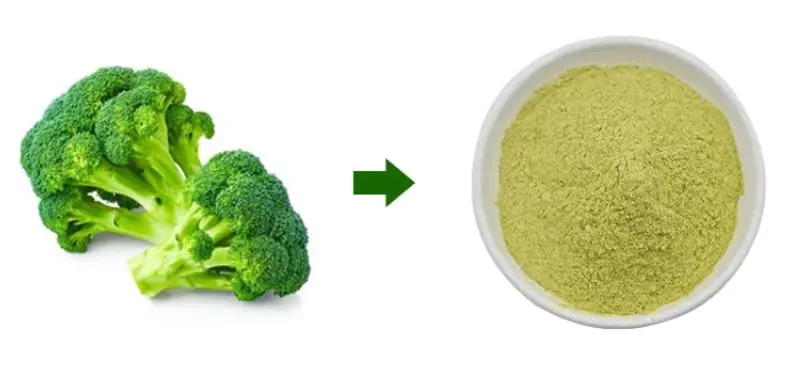Sulforaphane is a natural compound found in cruciferous vegetables such as broccoli, Brussels sprouts, cabbage and kale. It is a powerful phytochemical that has received widespread attention for its potential health benefits. Research shows that
sulforaphane has a variety of biological activities, including antioxidant, anti-inflammatory, and anti-cancer properties. This article aims to explore the role of
sulforaphane in promoting health and well-being.

One of the most well-known functions of
sulforaphane is its ability to activate a process called the Nrf2 (nuclear factor erythroid 2-related factor 2) pathway. Nrf2 is a transcription factor that plays a crucial role in regulating the body’s antioxidant defense system. When Nrf2 is activated, it triggers the production of antioxidant enzymes that help protect cells from oxidative stress and damage caused by free radicals. By boosting the body’s antioxidant capacity,
sulforaphane may help reduce the risk of chronic diseases related to oxidative stress, such as cardiovascular disease, neurodegenerative diseases, and certain types of cancer.
Additionally,
sulforaphane has been studied for its potential anti-inflammatory effects. Chronic inflammation is a key factor in the development of various diseases, including arthritis, diabetes and cardiovascular disease. Research shows that
sulforaphane may help regulate inflammatory pathways in the body, thereby reducing inflammation and its associated health risks. By targeting inflammation at a molecular level,
sulforaphane may provide a natural way to control inflammatory conditions and promote overall health.
In addition to its antioxidant and anti-inflammatory properties,
sulforaphane has been studied for its potential role in cancer prevention and treatment. Research shows that sulforaphane exhibits anti-cancer activity through multiple mechanisms, including inhibiting cancer cell growth, inducing apoptosis (programmed cell death), and modulating cell signaling pathways involved in tumor development. In addition,
sulforaphane has been shown to enhance the body’s detoxification process, which may help eliminate carcinogens and reduce the risk of cancer.

Another interesting aspect of sulforaphane is its effect on the gut microbiome. Emerging research suggests that sulforaphane may have beneficial effects on the gut microbiome (the diverse community of microorganisms present in the gastrointestinal tract). By promoting a healthy balance of gut bacteria, sulforaphane can support digestive health, immune function, and overall health. Additionally, interactions between sulforaphane and the gut microbiota may have implications for metabolic health and weight management.
Of note, while the potential health benefits of sulforaphane are promising, more research is needed to fully understand its mechanism of action and therapeutic applications. Additionally, the bioavailability of sulforaphane from dietary sources (e.g., raw or lightly cooked cruciferous vegetables) may vary, and supplementation with sulforaphane-rich extracts has been explored as a way to ensure continued intake of this beneficial compounds.

In summary,
sulforaphane is a bioactive compound with multiple health-promoting properties. From its role in boosting antioxidant defenses and reducing inflammation to its potential impact on cancer prevention and gut health,
sulforaphane continues to be a subject of interest and exploration by the scientific community. Incorporating sulforaphane-rich foods into a balanced diet may provide a natural way to support overall health and well-being. As research in this area continues to evolve, the potential application of
sulforaphane in preventive and therapeutic strategies for various health conditions is an exciting area worthy of further investigation.




 Food Additives
Food Additives









